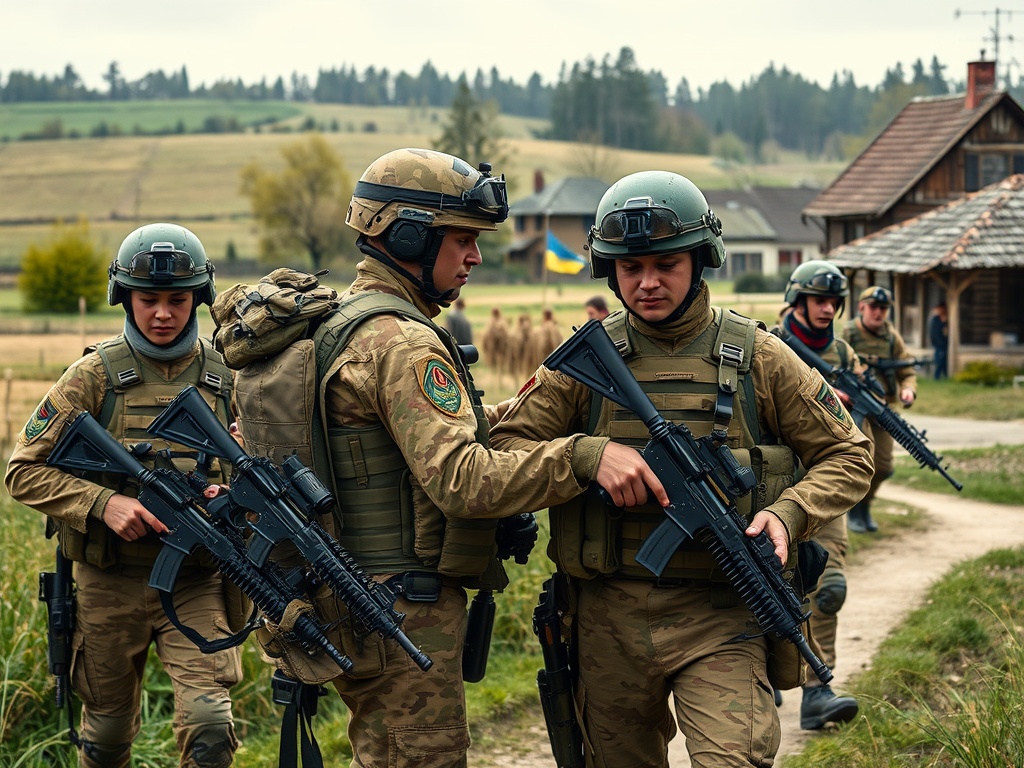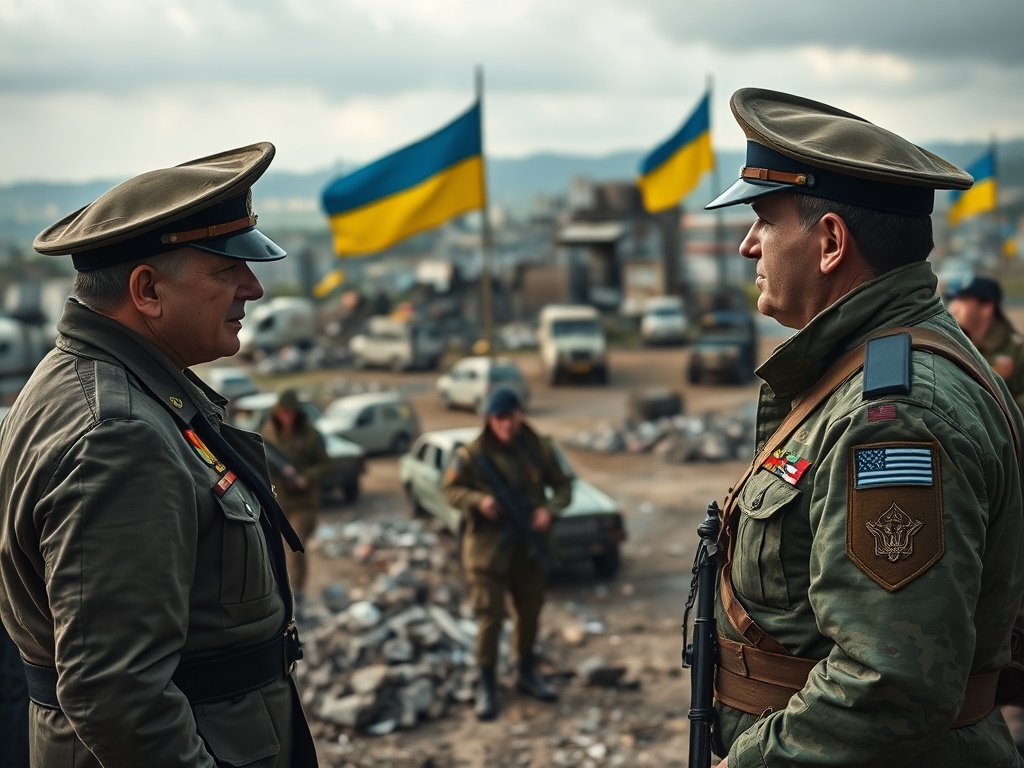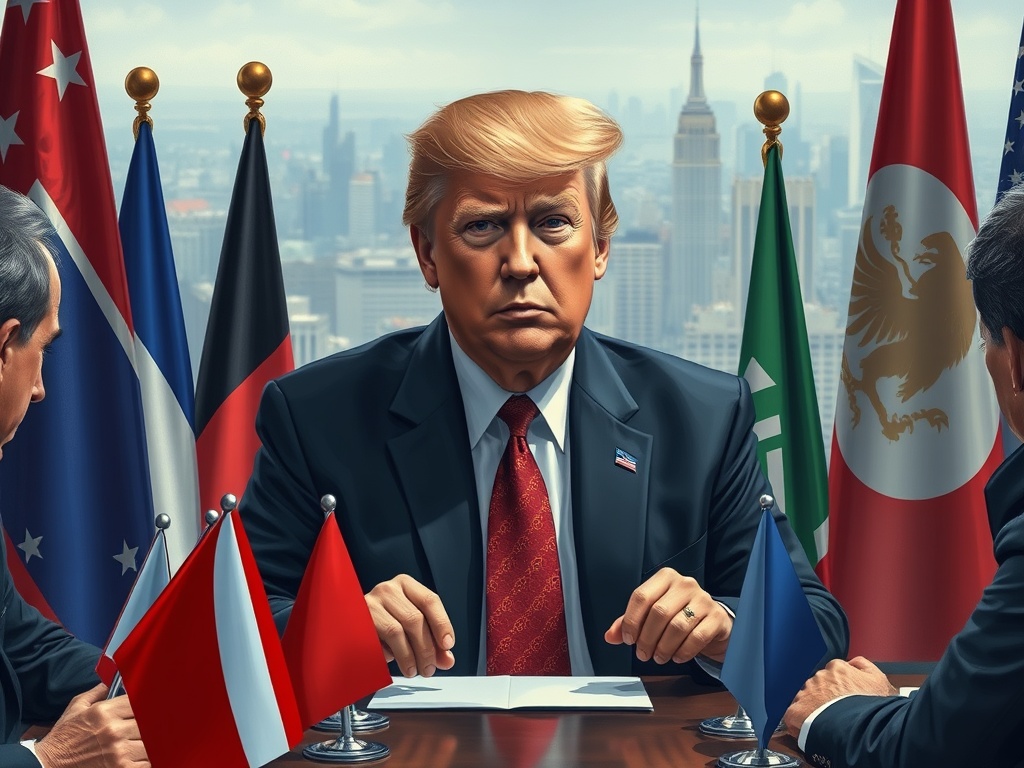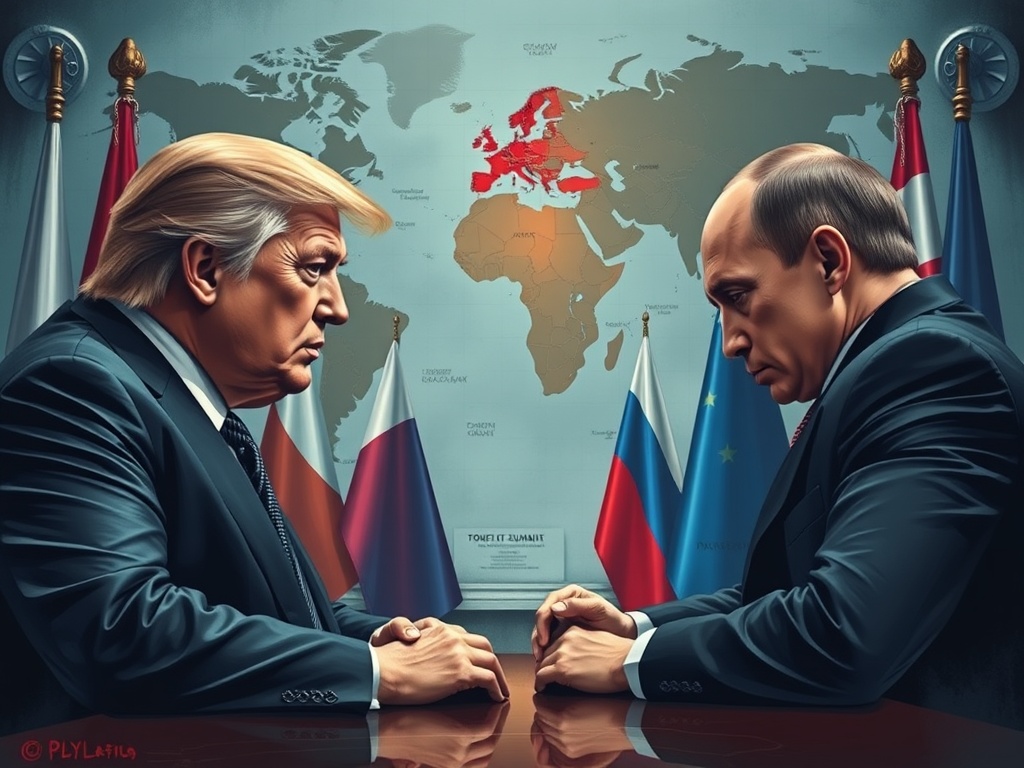Starmer’s Stance on Troop Deployment for Peacekeeping in Ukraine

Keir Starmer has articulated a significant shift in Britain’s foreign policy, expressing a willingness to deploy troops on the ground for peacekeeping purposes, contingent upon a peace agreement negotiated by Donald Trump regarding Ukraine. In his article for The Daily Telegraph, Starmer emphasizes, “The UK is ready to play a leading role in accelerating work on security guarantees for Ukraine. This includes further support for Ukraine’s military, where the UK has already committed £3 billion a year until at least 2030. But it also means being ready and willing to contribute to security guarantees to Ukraine by putting our own troops on the ground if necessary.”
This bold declaration has elicited criticism, with some arguing that committing British troops to uphold Trump’s peace initiative would cement Britain’s position as a proxy for the United States, rather than fostering closer ties with European allies. Nonetheless, Starmer’s newfound hawkish stance appears to be a strategic move aimed at positioning Britain as a leader in reinvigorating European relations with America at a pivotal time for transatlantic ties, which have been increasingly strained over recent years.
As questions arise regarding the potential risks for British troops, the specific roles they would assume under a Trump peace plan, and the current state of the British Armed Forces—after years of budgetary constraints—critics are likely to target Starmer on these fronts in the days ahead. However, the current situation was somewhat inevitable following Trump’s re-election in November.
According to a report from The i Paper in late November, NATO officials emphasized that any credible peacekeeping force would necessitate the involvement of Britain, given the circumstances. Throughout his election campaign, Trump had been explicit about his reluctance to deploy American troops in Ukraine. Therefore, any viable peace deal will likely require oversight from third-party peacekeepers, including NATO allies. For these peacekeepers to be credible, at least one nuclear power must be part of the coalition. With the U.S. opting out, that leaves NATO’s other two nuclear powers: Britain and France.
Despite Starmer’s perceived chaos during his initial months in office, the situation in France is arguably more tumultuous. Emmanuel Macron, a hawkish leader who may envision France spearheading a European military initiative in Ukraine, is politically vulnerable and unable to take the lead, according to NATO officials. His gambit during the previous summer’s elections has left him exposed to various factions on both the left and right, many of whom exhibit pro-Kremlin sentiments.
This scenario positions Britain as the most stable and viable European power capable of leading a coalition of peacekeepers. While Starmer’s shift may have been foreseen, he deserves recognition for declaring that Britain is prepared to take a prominent role in European defense. Such leadership is crucial at a time when existential questions surrounding the continent’s security have been overlooked for far too long.
Even after Russia’s full-scale invasion of Ukraine nearly three years ago, the increase in defense spending and the urgency of policy reforms across Europe have been slow and incremental, even among NATO allies. Without oversimplifying the complexities of the last three years, European governments can be critiqued for adopting a passive stance toward the ongoing conflict, provided it remained confined within Ukraine’s borders. Although European nations have invested substantial resources to support Kyiv, the bulk of military assistance has emanated from the United States.
Furthermore, without American backing, the war would likely have spilled beyond Ukraine’s borders. The possibility of Trump withdrawing U.S. support from Ukraine—and the broader European context—has compelled European nations to confront their shortcomings and inadequacies. Europeans have undeniably relied on the extensive American security umbrella to minimize their own defense expenditures. Understandably, Americans, including Trump’s supporters, are frustrated and expect Europeans to assume greater responsibility for their own security. Meeting these expectations would strengthen the justification for America’s continued involvement in NATO.
In his Telegraph article, Starmer asserts his commitment to maintaining strong ties with the United States: “Europe and the United States must continue to work closely together—and I believe the UK can play a unique role in helping to make this happen.”
It may be uncomfortable for European leaders to acknowledge, but they do require a bridge to America at this juncture. Trump has directly engaged in negotiations to resolve a conflict on European soil with its primary aggressor, bypassing traditional diplomatic channels.
Whether Starmer will successfully construct that bridge remains uncertain; however, for Britain to fulfill this diplomatic role, it may have to accept its position as a junior partner to both the United States and potentially the European Union. Despite the discomfort this arrangement may cause, Europe still needs the United States, regardless of its sentiments toward the current occupant of the White House.




